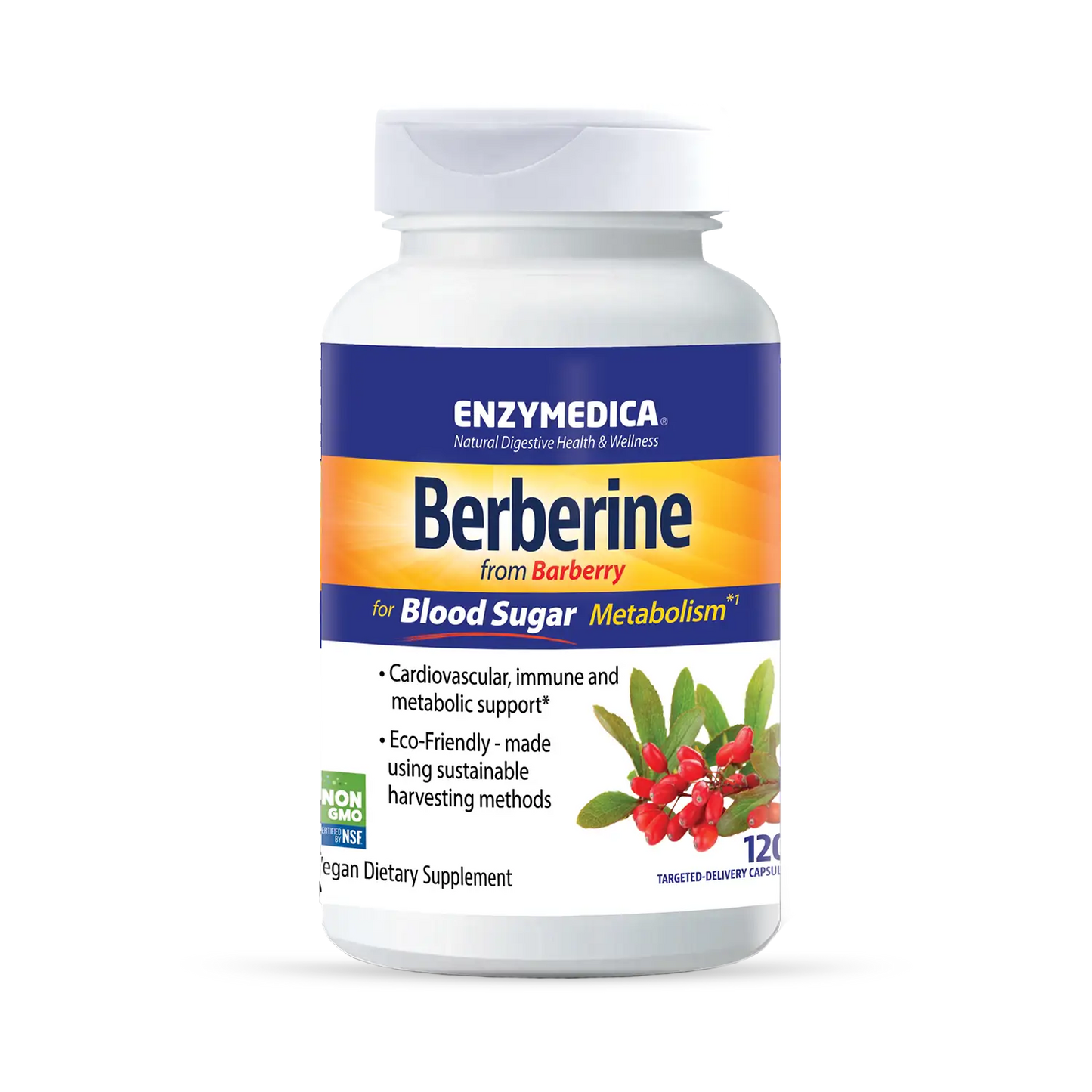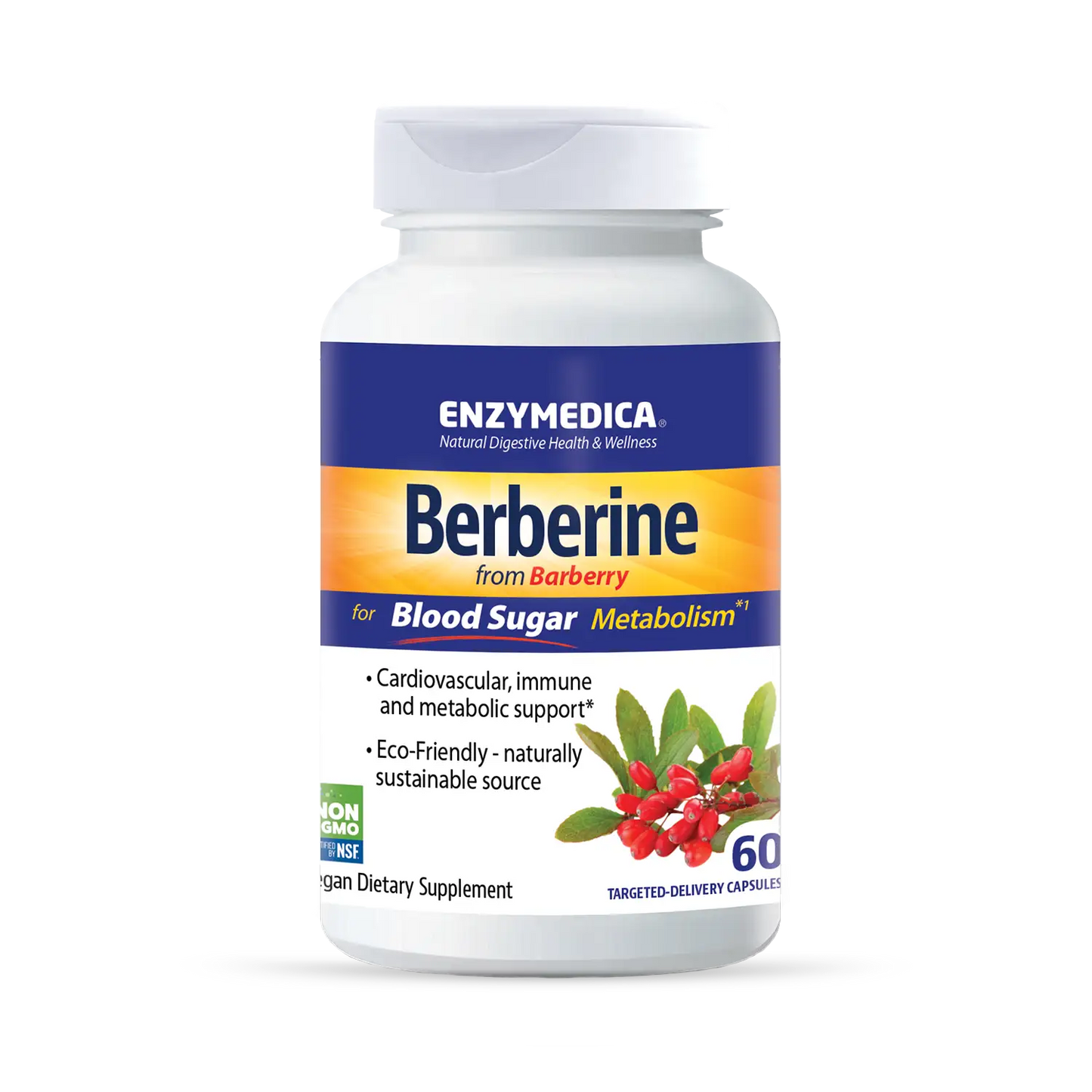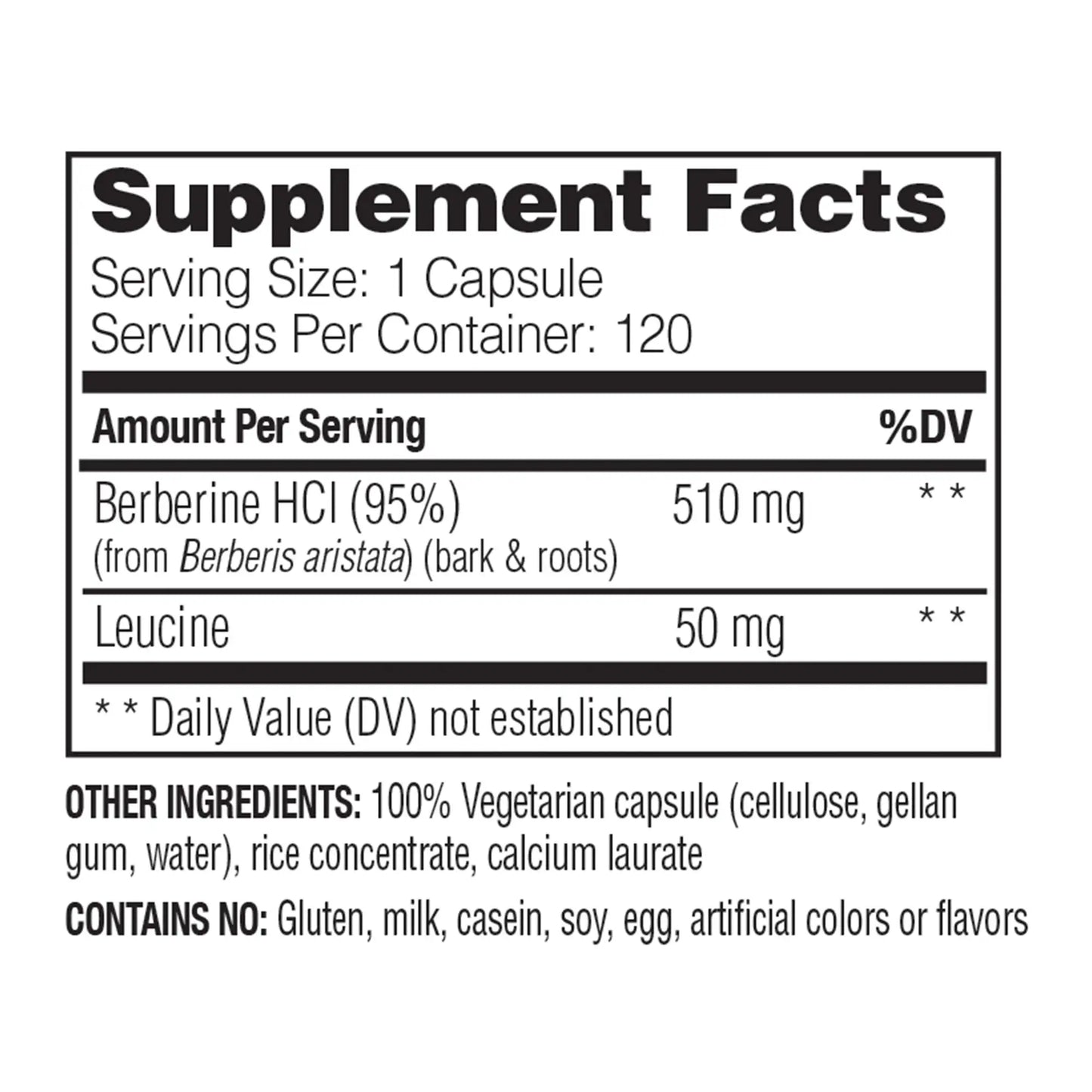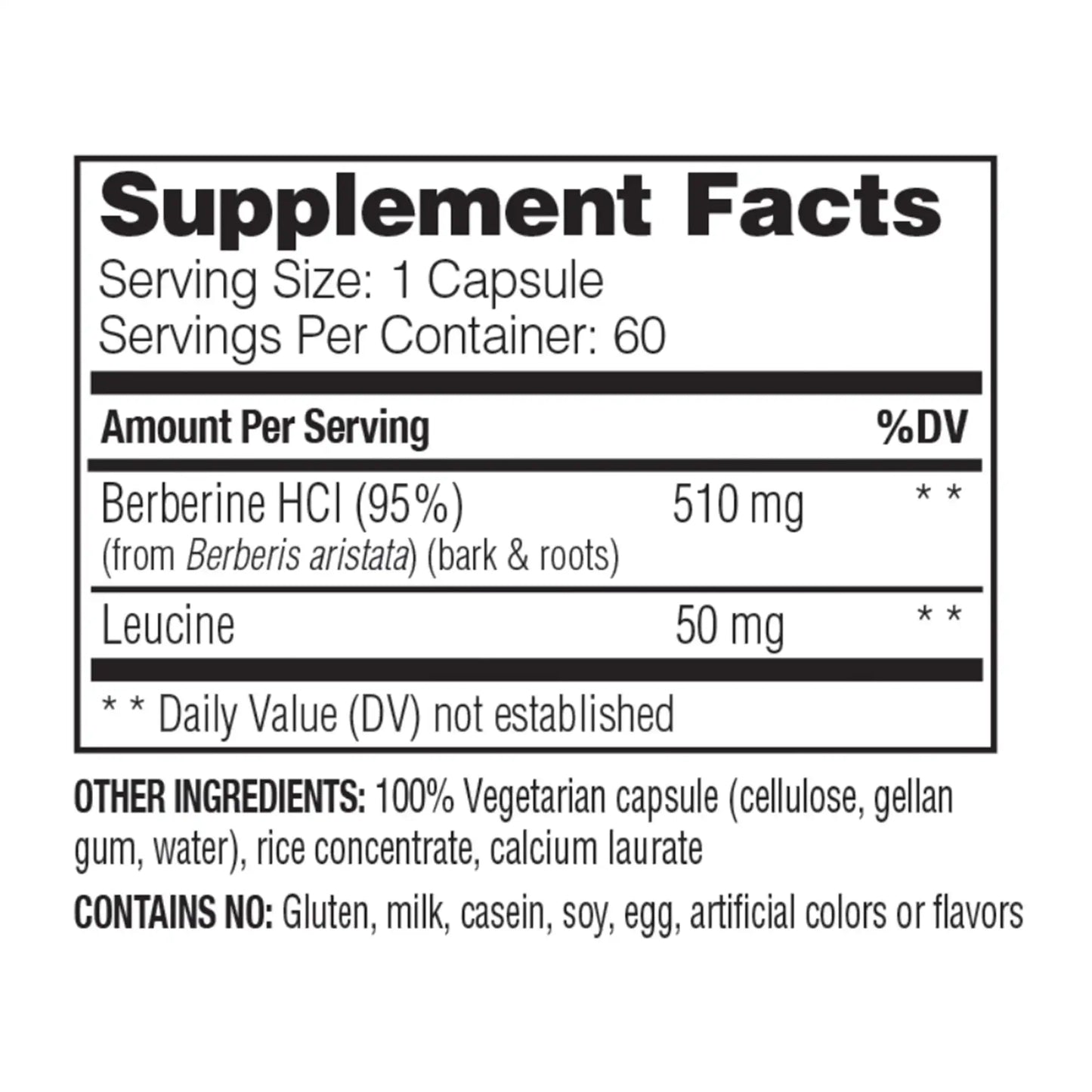- Helps maintain healthy metabolism of blood sugar*
- Supports healthy immune and cardiovascular system function*
- Naturally sustainable source
- Promotes a healthy microbiome*
- Targeted release capsule
Berberine
Berberine
Couldn't load pickup availability
Practitioner's please contact support to setup your subscription orders
 Vegan
Vegan
 Dairy Free
Dairy Free
 Gluten Free
Gluten Free
 Soy Free
Soy Free
The Benefits
The Benefits
The alkaloid berberine has long been used for various health benefits. Sourced from barberry, a naturally sustainable plant, Enzymedica’s Berberine supports healthy blood sugar already within the normal range, along with the immune and cardiovascular systems.*
The Science
The Science
What is berberine?
An alkaloid found in many plants, including goldenseal, barberry, Oregon grape and goldthread, berberine has long been used as a natural compound for a number of common ailments. Over time, science has backed up what common wisdom has long told, especially with its power to boost blood sugar metabolism and promote weight loss.*
What makes Enzymedica's Berberine better?
Berberine can be sourced from many plants, including Barberry and Goldenseal. Unfortunately, Goldenseal is an “at risk” plant due to overharvesting in the wild and its use is strongly discouraged by plant conservationists.
Enzymedica’s Berberine is sourced from the barberry plant, which grows abundantly, is naturally sustainable and rich in valuable phytochemicals. Our Berberine is standardized at 95%.
What is science saying about it?
There are numerous research studies that support Berberine's use as a dietary supplement. In a series of two double-blind studies, Berberine was found to be influential for healthy weight management.*1,2
References:
1. Yang, J., Yin, J., Gao, H., Xu, L., Wang, Y., and Li, M. Berberine improves insulin sensitivity by inhibiting fat store and adjusting adipokines profile in human preadipocytes and metabolic syndrome patients. Evid. Based Complement. Altern. Med. 2012; 2012: 363845.
2. Perez-Rubio, K.G., Gonzalez-Ortiz, M., Martinez-Abundis, E., Robles-Cervantes, J.A., and Espinel-Bermudez, M.C. Effect of berberine administration on metabolic syndrome, insulin sensitivity, and insulin secretion. Metab. Syndr. Relat. Disord. 2013; 11: 366–369.
Berberine and berberine-containing plants are not recommended for use during pregnancy.
Berberine may interfere with the absorption of tetracycline and related antibiotics. Berberine produces significant inhibition of CYP3A enzymes in humans. Because these enzymes metabolize most drugs, berberine may decrease the clearance of many medications thereby potentiating their effect.
Recommended Dose
Recommended Dose
1 capsule before meals with a glass of water two to three times daily




















